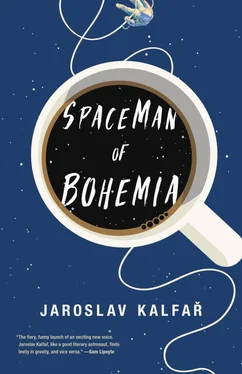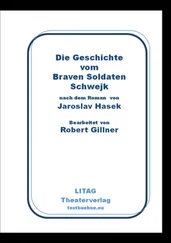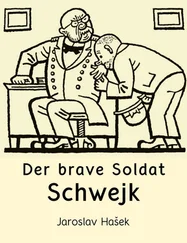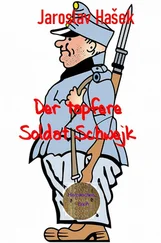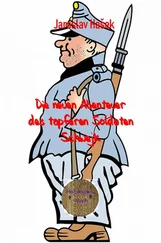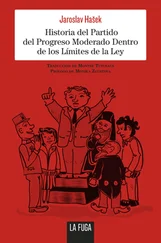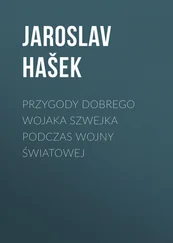I held on to the restraints cutting into my chest and stomach, took a few deep breaths. Hanuš stirred. Petr finally turned his attention back to me, wiping sweat from his forehead. The dust particles rolled past in waves, poured over the observation window like shavings of wood flying off a chain saw blade. The contact was soundless, but JanHus1 trembled nonetheless. The trajectory of the spacecraft changed left to right, up and down, as its burning fuel struggled against Chopra’s chaotic influence. Petr instructed me to shut off the engines, and I did, now simply gliding along the rotating patterns around the thick core. On Earth, the Petřín Hill crowds raised their Staropramens and cheered the old adage: The golden Czech hands! I embraced the kitsch. Those raised beers were all for me.
How would Jan Hus feel about this encounter? Would he take it as a reaffirmation of his all-powerful deity? I wanted to think that his brilliant mind would embrace it as a token of complexity of the universe, a clue that the definition of deity goes beyond the abstract definitions of scripture.
“We are here,” I would tell Hus, “the only humans. Every time we venture out farther in thought or time or space (and isn’t it all the same, master?), we are giving your God a steel-bound handshake. You did it and now I did it too, even if my God is the microscope.”
I ran my fingertips along the panel and activated Ferda the dust collector. The control interface displayed the filter as it slid out of its protective shell and began to collect the dust particles. No, the belly of my ship would not go hungry. Already Ferda’s scanners displayed the structure of the crystals it had gathered. Lapping them all up like a dog’s thirsty tongue.
“The core is bringing you in,” Petr said. “It looks like it has its own mild gravitational influence. Feeling good up there?”
“Feeling great. How much time before I reach the core?”
“At this pace, about twenty minutes. Let’s allow ten more for collection, then activate the propulsion engines and shoot you out of there. We’ll stabilize your trajectory back to Earth remotely. After that, you get those golden hands in the lab.”
“Roger.”
I looked around and realized Hanuš had gone away. I did not feel his presence in my temples. An echo of sandpaper scratching upon metal spread through the ship. I listened to locate its source, but it seemed to be everywhere, a merciless grinding. The speed at which I spun was increasing quickly. The core seemed too close. Solid, like a piece of rock. Impenetrable.
The lights above me flickered, as did the Flat monitor. A rush of cool air chilled my shoulders.
“Something funny with your power source,” Petr said.
The scratching turned into a steady hiss. The lights flickered at more prolonged intervals. The ship was no longer merely trembling—massive vibrations rocked it back and forth, and the purple dust crashing against my window had become so thick that I could no longer see Venus.
“It’s speeding up,” Petr said, his voice cracking. He pinched his beard and pulled a few hairs out.
Senator Tůma stood next to him, a foolish smile frozen on his face, champagne glass now empty. The hired help all watched the screens, mouths agape.
The light bulbs above me exploded, their tiny, sharp pieces crashing against the protective plastic ensuring the shards wouldn’t float around the cabin. The blue emergency lights kicked in, powered by a generator disconnected from the main circulation, the same generator powering the Flat. A sharp emergency ring interrupted the gentle symphony of Rusalka . I focused all of my thoughts on Hanuš, hoping he would come back.
“Jakub, the mainframe is down. Visual diagnostics?”
I unstrapped from the chair and pulled myself toward the Corridors, relieved to be free of the rough vibrations now that I wasn’t attached to any surface. All seemed normal in zero gravity. Just as I was about to leave the Lounge to inspect the mainframe, I noticed a few purple grains making their way in between the thin bars of a filter vent. I leaped back toward the Flat.
“The dust is penetrating the ship,” I told Petr.
“Fuck, what?” he said. Seconds later, the video feed to the IMAX screen on Petřín Hill faded, leaving a paralyzed herd of onlookers squinting at the crude stadium lighting. Secret service agents ushered the politicians and journalists outside the Control Room while Petr barked orders at his engineers.
“All right, we’re calling it. Run the propulsion engines. Get the hell out of that thing.”
I checked the Ferda collection levels. Only about 6 percent filled—not nearly enough. “Another minute,” I said, “just one more.”
“The dust is eating through your ship, Jakub. The electrical cables are already eroded. Get out. I’d override your controls if it still worked.”
“I need just another minute,” I said.
“Do as you’re told. Propulsion in three—”
“I’ve spent four goddamn months,” I said. “My tooth is rotting, my wife left me, and now he’s gone too. One more minute.”
“Who’s ‘he’?”
“Just a bit of time, Petr.”
I took out my earpiece. A bit of time. I figured it would make me wiser, that one minute. Make me understand something about the universe, or myself. Perhaps I believed Hanuš that Chopra held the key to the beginning. Perhaps I was daring myself to die. See what the fuss was about.
Wisdom did not arrive at the minute’s conclusion. Within thirty seconds, the blue emergency lights melted into darkness, as did the Flat.
I hadn’t realized just how loud JanHus1 was when operating. Without the hum of filters and air-conditioning and screens, all I could hear was the ceaseless grinding. The purple phosphorescence provided only a fragment of light. I heard a quiet voice and felt around the desk for the earpiece.
“… ammit, JanHus1, respond, fuck…”
“Petr?” I said.
“Jakub. I can’t see you. Report.”
The vibrations ceased. The vision of the core covered the rest of my universe. It seemed I was so close that I could touch it. The layer of the cloud I found myself in was free of dust, free of any debris, like an atmosphere that had rejected everything else but me. The core no longer pulled. JanHus1 was perfectly still within this sphere of nothingness.
“I’m close,” I said, “but the gravitational influence has weakened.”
“Comms are the only thing that’s working. Not a single sensor in the ship is functional.”
Something landed on my cheek. I wiped it with my finger and found purple smeared on my fingertip. The flakes surrounded me now, falling from crevices in the ceiling. The air was stale and hard to breathe.
“Petr,” I said.
“Yeah.”
“I think the oxygen tank is out.”
I recovered a flashlight from the desk drawer and made my way through the Corridors. The electronic door panel leading to the mechanical bay was not functional, and I had to pull the levers and push with all my strength to open the hatch. I passed the engine control bay and entered the oxygen room, where a trio of massive gray barrels rested on the floor. As long as an electrical current ran through these tanks, allowing them to separate hydrogen and oxygen, they were perhaps the most crucial parts of the ship. Now they were simply three useless water towers tossed on their bellies like pigs about to be slaughtered. No fresh oxygen was being pumped into my world, just as the carbon dioxide was not being filtered out.
I informed Petr.
“Tell me when you start to feel dizzy,” he said. “And get your ass to the mainframe panel. Let’s fix this. Let’s get you out.”
Читать дальше
